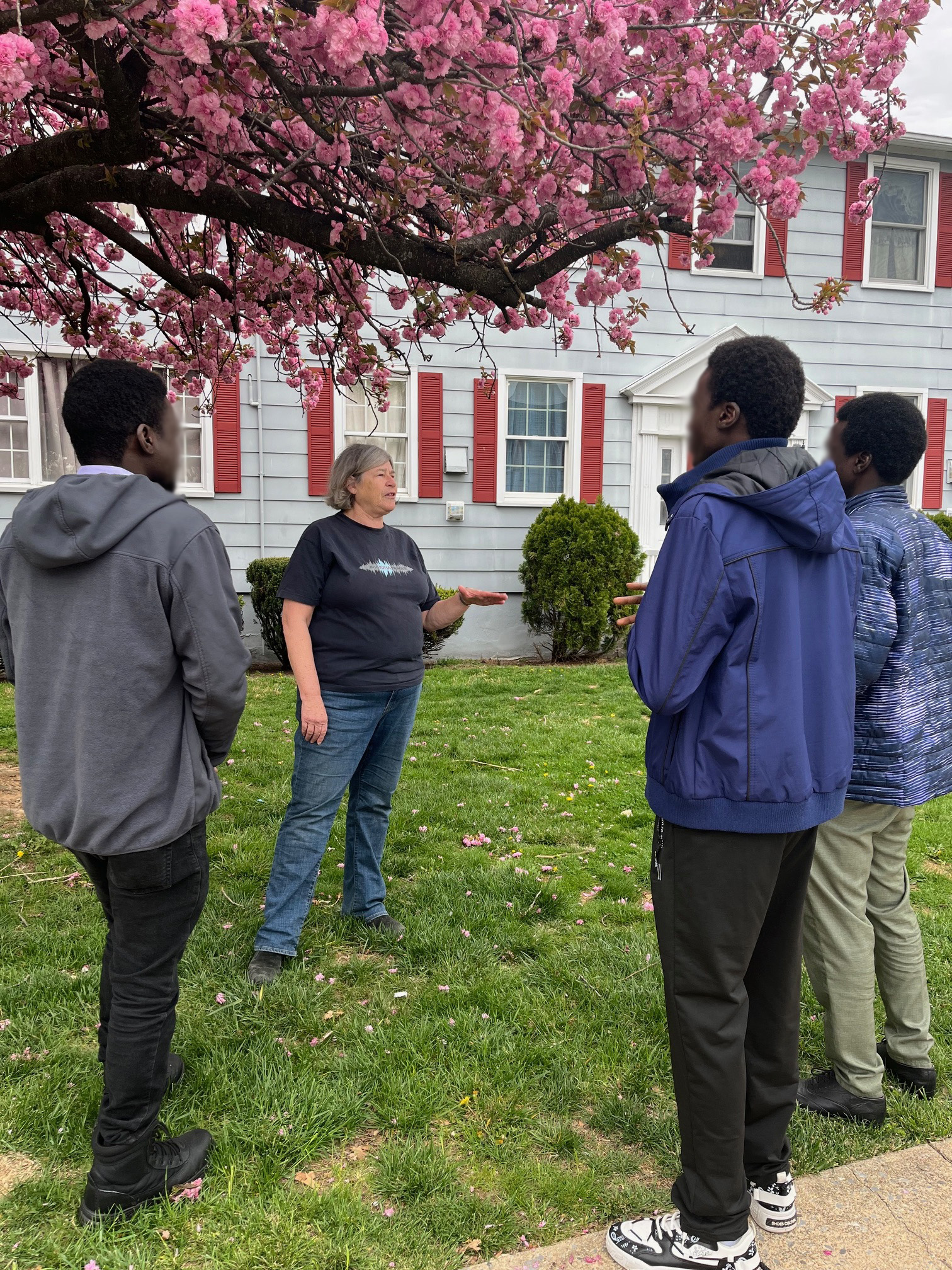Trigger Warning: This story contains descriptions of war, loss, trauma and death that may be distressing for some readers.
Brothers Faheem, Samir and Mohamed* were children when in 2004 they fled genocide in Darfur, Sudan, making the arduous trek across the Kaja Valley border to Chad on foot and by donkey. Their pursuers, the Janjaweed (which means “devils on horseback” in Arabic) paramilitary group would persecute and kill members of the Masalit ethnic group over the next two decades in Sudan.
The brothers grew into adulthood in the Breidjing refugee camp in Chad, while their relatives were brutally killed back home. They knew they could never return to the remote village where their family had farmed mainly millet and peanuts for generations.
“We were targeted [by the ethnic Arab militia] because of our Masalit ethnicity, our blacker skin,” says Faheem, the eldest of the brothers who were resettled locally in 2024 by CWS Harrisburg. They lacked equal rights or access to vital services. He said, “I never saw a hospital. We had no vaccines or pure water. I saw water taps for the first time in Chad, made by Oxfam.”
Two Decades of Mayhem
A new civil war erupted in 2023, when the Rapid Support Forces paramilitary group clashed with Sudan’s army for control of the country. The RSF, formerly called Janjaweed, killed 15,000 people in two months, according to Faheem. Today, an additional 8,000-plus are missing, including Faheem’s half-sibling. “People were buried alive. Some of us fled in 2004, some in 2023 [when] we were being targeted a second time,” he said grimly.
The current situation is so dire that, on March 13, the head of the United Nations children’s agency declared the war in Sudan has created the world’s largest and most devastating humanitarian crisis with over 30 million people needing aid this year, 16 million of them children.
A Life in Exile
The brothers passed from childhood to adolescence to adulthood in the Breidjing camp, which grew to 55,000 refugees at one point, according to Faheem. With help from other nations, including the U.S., the camps established schools and other services. Equipped with a bachelor’s degree from the University of Bahri in Khartoum, Sudan, Faheem became the camp’s secondary-school principal, while also serving as an interpreter for three humanitarian NGOs, including CWS. Samir, who earned teaching credentials from an education school in Chad, taught physics and chemistry in the middle school.
Through the CWS-supported Resettlement Support Center Africa, the family’s refugee application process began in 2016, after almost 10 years of chasing an endlessly moving target as U.S. policies and administrations shifted from Obama to Trump to Biden. Samir, his wife and two sons, and Mohamed arrived in May 2024, under the care of the CWS Harrisburg office. Faheem, his wife and infant son came in December, just before the switch back to the Trump administration’s restrictive immigration policies.
Building a New Life
Faheem’s plan in leaving Africa was “to start a new life with respect and dignity. My hope was that we could live in a safe place where you don’t feel like you are treated unfairly.” His wife is looking forward to learning English, and Faheem believes his son will have a better life here, free from warfare. “In the USA people are treated equally and with dignity and respect regardless of their background and race.”
As the seemingly endless civil war in Sudan grinds on, the brothers worry about their family left behind in the Breidjing camp, including their parents and five siblings. Since the Trump administration dismantled the U.S. Agency for International Development in early 2025, the World Food Program, which provides food for the camp, has been severely underfunded.
“There is not enough aid coming in,” said Faheem. “It’s very difficult to get medical care, especially for children, and there is malnutrition.” The U.S. aid that supplied the schools with books also has dried up, he said.
Meanwhile, the brothers have begun ESL classes to polish their English. With the help of local CWS volunteers, in March, Faheem and Samir applied for full-time food service jobs and were quickly hired. Youngest brother Mohamed works at a warehouse in the same town. “People are friendly here and like helping,” Faheem said, referring to CWS staff and volunteers.
A community of Sudanese Masalit have welcomed them, and recently they gathered to break fast during Ramadan. Faheem said their new community finds strength in one another. “If we’re happy or sad, we share that. One of the people had a brother die in Chad. We came together to say we were sorry. We pray and ask Allah to stop the war.”
*To protect the identity of our clients, pseudonyms have been used in this story.
Sherri Kimmel is a writer and volunteer with CWS Harrisburg. To learn more about the work of CWS Harrisburg, visit their website.

